Our pilot platform showcased various African university research innovations. Many of these innovations have the potential to solve Africa’s challenges in climate change, health, medicine, agriculture and energy needs.
Our African Diaspora networks were part of this pilot by providing technical assistance, mentorship and potential impact capital.
- All

Power of Artificial Intelligence to Diagnose and Prevent Further COVID-19 Outbreak
Novel coronavirus-19 (2019-nCoV or COVID-19) is by far the most dangerous coronavirus ever identified for the third time in the three decades capable of infecting not only the animals but also the humans across the globe. Nearly 6000 deaths have been recorded due mainly to COVID-19 outbreak worldwide and more than 50% of these deaths appeared to have evolved from China where the virus was thought to originate.
Read More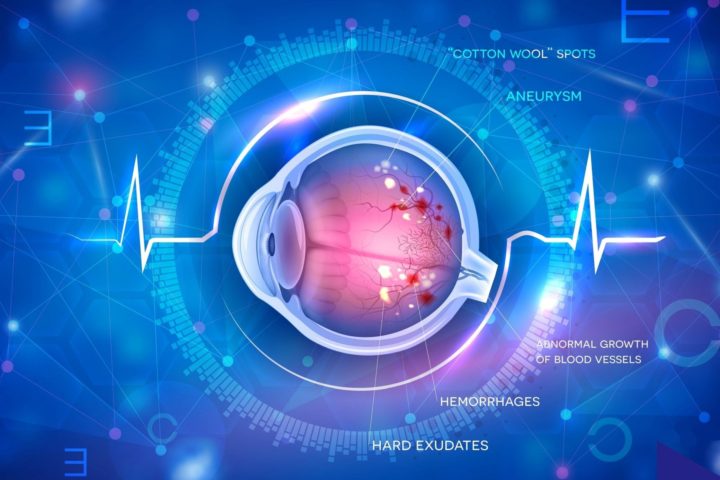
Using Deep Learning to Screen for Vision-threatening Diabetic Retinopathy in Africa
Radical measures are required to identify and reduce blindness due to diabetes to achieve the Sustainable Development Goals by 2030. Therefore, we evaluated the accuracy of an artificial intelligence (AI) model using deep learning in a population-based diabetic retinopathy screening programme in Zambia, a lower-middle-income country.
Read More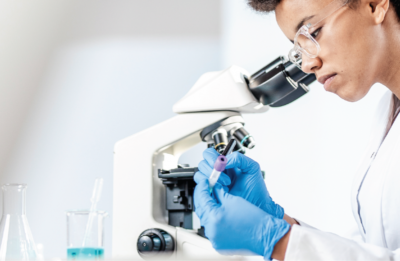
Detecting Cervical Cancer Through Artificial Intelligence Powered Digital Microscopes In Africa
The diagnoses and treatment of cancer have progressed remarkably in recent decades across the African continent. More people with cancer are afforded longer lifespans or cure against cancer. Such advances include immunotherapy that encompasses the utilization of inhibitors, antibodies, and immune system modulators to boost the immune response against cancer. Furthermore, cancer vaccines are being developed to prevent cancer from hiding in human cells.
Read More
Implementation of Genomics Research in Africa: Challenges and Recommendations
Challenges affecting genomics research implementation in Africa, which are related to limited resources include ill-equipped facilities, poor accessibility to research centers, lack of expertise and an enabling environment for research activities in local hospitals. Challenges related to the research study include delayed funding, extensive procedures and interventions requiring multiple visits, delays setting up research teams and insufficient staff training and language barriers.
Read More
Developing Resources for Automated Speech Processing of African Languages
The development of Human Language Technologies(HLT) tools is a way to break down language barriers.There are approximately 6000 languages in the worldbut unfortunately, only a handful possess the linguisticresources required for implementing HLT technologies.
Read More
Artificial intelligence in health care: laying the Foundation in low- and middle-income countries
The World Health Organization and other institutions are considering Artificial Intelligence (AI) as a technology that can potentially address some health system gaps, especially the reduction of global health inequalities in low- and middle-income countries (LMICs). However, because most AI-based health applications are developed and implemented in high-income countries.
Read More
Development of a Self-Sustaining Electro-Mechanical Power Generating System
Access to modern and clean energy services is a necessary requirement for achieving development goals that extend far beyond the energy sector, such as poverty eradication, access to clean water, improved public health and education, women’s empowerment and increased food production.
Read More
The potential Impact of Flywheel Energy Storage Technology on Uganda’s Energy Sector
The energy crisis in Uganda has caused a sharp decline in the growth of the industry sector from 10.8% to 4.5% between 2004/5 and 2005/6. This crisis has escalated the power disruptions, which have had adverse effects on various sectors. While business owners have resorted to importation of fossil fuel generators that have increased the cost of production, others have resorted to battery energy storage systems to cater for short outages, which are limited in life span, depth of discharge, among others.
Read More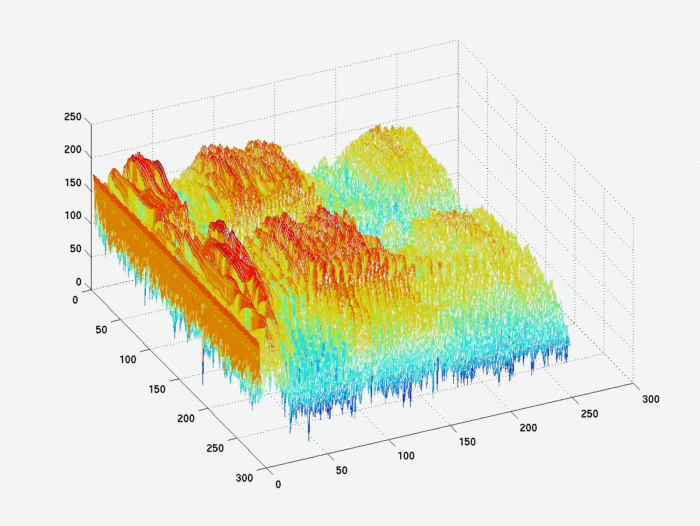
Speech Signal Analysis as an Alternative to Spirometry in Asthma Diagnosis
Speech production involves the vibration of the vocal cords. Voice changes will occur in respiratory diseases such as asthma due to the inflamed lung airways, which is part of the vocal tract. Spirometry is a well-known technique employed in diagnosis of asthma to give information on patient pulmonary function. The purpose of this research was to investigate the correlation between Forced Expiratory Volume to Forced Vital Capacity (FEV1/FVC) ratio obtained from spirometry and Harmonics-to-Noise Ratio (HNR) obtained from human speech.
Read More
Thermal Energy Storage Materials Made of Recycled Resources in West Africa
A sustainable development of Concentrating Solar Power plants can be really undertaken by using locally made components and low cost eco-materials. This study is focused on the use of coal bottom ash from Niger coal power plant and slaked lime from Burkina Faso acetylene production as industrial wastes, as well as laterite and clay from Burkina Faso as natural stones for the elaboration of thermal storage materials.
Read More
Use of Machine Learning as a Prognosis Predictive Model to Guide Clinical Decision Making
Dr Irene Andia Biraro presents her RIF project on the Use of Machine Learning as a Prognosis Predictive Model to Guide Clinical Decision Making on the Infectious Diseases Unit at Kiruddu National Referral Hospital.
Read More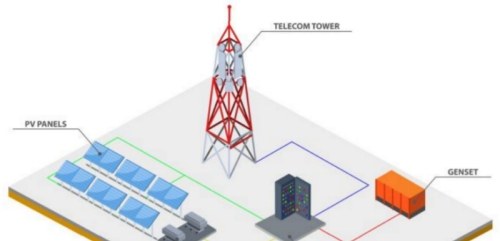
Energy Storage Options for Wireless Networks in Rural Africa
This paper explores various traditional and emerging battery technologies available for deployments of automated environment monitoring devices using Wireless Sensor Networks (WSNs) in Africa and the considerations designers must take into account when implementing these systems. Environment-monitoring applications of WSNs are focusing more on reducing power consumption and optimizing data transmission and less on the constraints that their applications and deployment environments put on the energy storage device. We describe the various properties of energy storage devices and, for each, we highlight the requirements to be met for environment monitoring applications, especially in remote areas in Africa.
Read More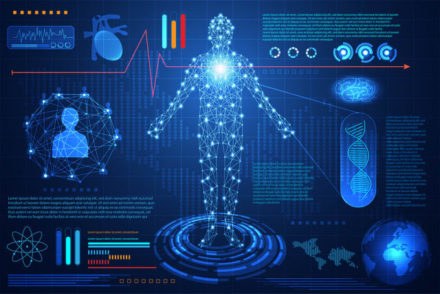
Radiographers perspectives on the emerging integration of artificial intelligence in Ghana study
The integration of artificial intelligence (AI) systems into medical imaging is advancing the practice and patient care. It is thought to further revolutionise the entire field in the near future. This study explored Ghanaian radiographers’ perspectives on the integration of AI into medical imaging. Methods A cross-sectional online survey of registered Ghanaian radiographers was conducted within a 3-month period (February-April, 2020).
Read More
The Growth of High-Performance Computing in Africa
Much of Africa has limited experimental research facilities in many areas of fundamental and applied sciences. There are, however, cases where government support has made a difference in providing both infrastructure and funding to researchers as well as graduate students to carry out experimental work. This article describes continent-wide initiatives to grow computational sciences and high-performance computing work. These programs are expected to produce African researchers and scholars who will drive the materials science research agenda, thereby directly influencing their own economies.
Read More
A Portable Deep Learning-based Platform for Passion Fruit Disease Identification
Pests and diseases pose a key challenge to passion fruit farmers across Uganda and East Africa in general. They lead to loss of investment as yields reduce and losses increases. As the majority of the farmers, including passion fruit farmers, in the country are smallholder farmers from low-income households, they do not have the sufficient information and means to combat these challenges. While, passion fruits have the potential to improve the well-being of these farmers as they have a short maturity period and high market value , without the required knowledge about the health of their crops, farmers cannot intervene promptly to turn the situation around.
Read More
Artificial Intelligence for Healthcare in Africa
Radical measures are required to identify and reduce blindness due to diabetes to achieve the Sustainable Development Goals by 2030. Therefore, we evaluated the accuracy of an artificial intelligence (AI) model using deep learning in a population-based diabetic retinopathy screening programme in Zambia, a lower-middle-income country.
Read More